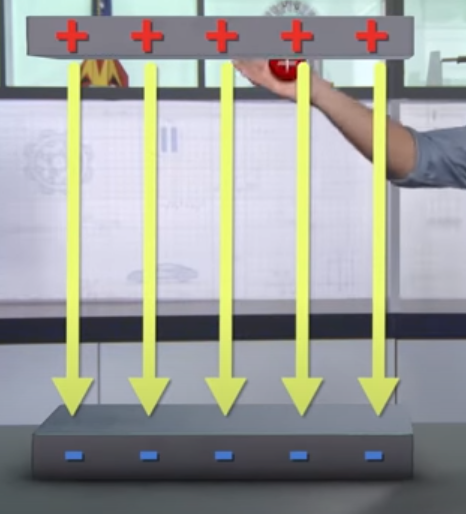I've seen this video explaining Electrical Potential, and there's something I don't quite get.
Ok so if I got this right - electric potential energy is the potential energy stored by a charge when placed in an electric field, which is a field generated by another charge, so far so good?
The guy in the video is giving an example of two plates - one negatively charged and one positively charged. He then simulates a positive charge placed in between and explains that when the charge is closer to the positive plate, the potential energy is bigger, and as it gets further, it decreases.
the thing I don't quite get is: Do we have to have the negatively charged plate for this to work? Doesn't the positively charged plate on itself creates a field that will repeal the positive charge?
My question really is: Does any point in space is associated with an electric potential? Like, just some point in the air between me and the computer screen I'm sitting in front of? Does my body has some electric potential? Or do you must have 2 oppositely charged objects in order to have an electric potential?

